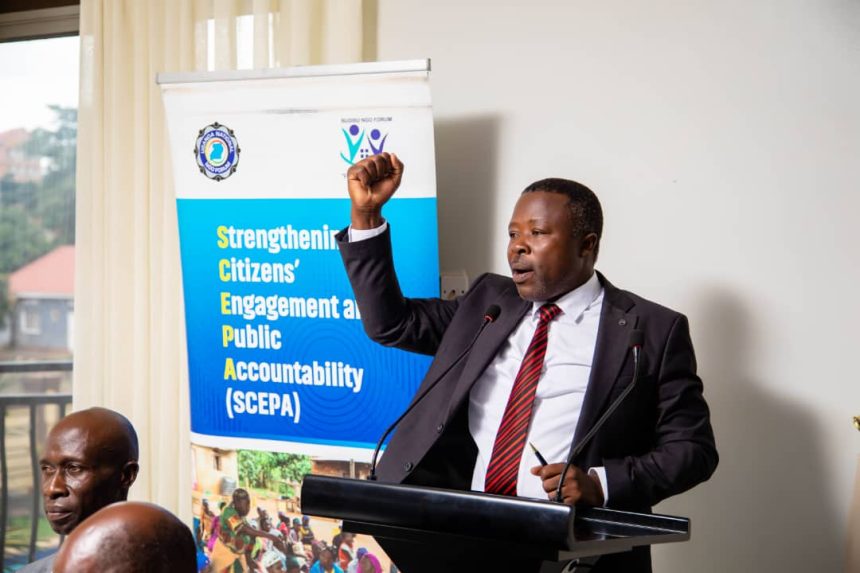I personally regard Jesus Christ as one of the earliest spokespersons on Earth. He spoke passionately for a spiritual cause on behalf of the One who sent him. Others in this category include Prophet Muhammad (Peace Be Upon Him), who similarly conveyed a divine message, often under intense opposition and personal risk.
Spokespersons, whether in religion, government, or institutions, can be both hated and admired. Above all, a spokesperson must be passionate about their role and have a solid command of organizational policies, protocols, and history. They are the official voice of the entity they represent.
For example, Jesus Christ, deployed to advance the cause of Christianity, suffered at the hands of the ruling class of his time. Similarly, Prophet Muhammad (PBUH) faced near-fatal opposition, even from his own relatives, for urging Meccans to abandon their destructive practices. The path of a spokesperson is never easy — one can be arrested, sanctioned, or even killed for defending the organization’s position.
In recent years, the spokesperson of the M23 rebel group in the Democratic Republic of Congo (DRC) was sanctioned by Western powers for his role in publicly advocating the group’s cause. During the Iraq War, the government spokesperson under Saddam Hussein was labeled dangerous by the Americans. After Saddam’s capture in 2003, the spokesperson fled into hiding but later resurfaced. Interestingly, he was later exonerated — perhaps someone finally realized he was simply doing his job.
Who is a Spokesperson?
According to Black’s Law Dictionary, a spokesperson is a person who speaks on behalf of an organization, conveying its information, opinions, and statements to the public. Similarly, an online legal dictionary defines a spokesperson as a well-known individual who serves as a regular voice for a cause.
Whether they serve the military, police, government departments, or cultural institutions, spokespersons hold significant influence. Their words are often considered final when it comes to articulating the official stance of an organization. They are expected to communicate professionally and consistently, even when their personal views differ from what they are saying.
Key Responsibilities
Spokespersons disseminate information through press releases, media interviews, public statements, and digital platforms. Their work includes:
- Communicating the organization’s official policies, actions, and updates
- Ensuring clarity and consistency in all communications
- Representing the organization in times of crisis or controversy
- Defending the institution against misinformation or defamation
During crises — such as the sudden sacking of a high-ranking official — the skills of a spokesperson are truly tested. Without effective communication, such moments can plunge an institution into disarray.
Personal Experience in Bugisu Cultural Institution
As the spokesperson for the Bugisu Cultural Institution, I have experienced firsthand the importance of timely and accurate communication. When the government corrected the institution’s name from “Inzu Ya Masaba” (which was legally registered as a company) to Bugisu Cultural Institution, in line with Article 10 and Schedule 3 of the Ugandan Constitution, some individuals wrongly blamed the current leadership under His Highness the Umukuka.
Using various media platforms — including The Ankole Times, UBC TV, and Daily Monitor — we clarified the matter. We explained that only the Minister of Gender, not any other entity, has the legal authority to amend cultural institution names. Our people listened, and confusion was resolved.
Spokespersons must be equipped to counter misinformation from individuals or groups who may distort facts for their own agendas. They must respond professionally but firmly, ensuring the truth prevails.
I recall one particular instance when Dr. Khisa wrote a serious critique against the cultural leader of the Bamasaaba people. I publicly responded in defense of our leader, and Dr. Khisa later apologized. This was not out of hostility, but as a duty to protect the dignity and legitimacy of the institution.
Qualities of an Effective Spokesperson
A spokesperson must possess:
- Media literacy and basic legal knowledge
- Strong writing and public speaking skills
- A deep understanding of the organization
- Confidence and trustworthiness
- The ability to act swiftly and decisively
A respected spokesperson gives weight to the cause they represent. In 2020, during a leadership dispute within the Bugisu Cultural Institution, His Highness the Umukuka contacted me through his intermediaries to help promote his rightful claim. I accepted the task, leveraged media channels, and played a role in the successful gazetting of his leadership in 2023. Today, he is implementing many impactful projects, and I continue to visit schools and universities to talk to learners about the importance of education and culture.
Spokespersons are not mere mouthpieces — they are guardians of institutional truth, defenders of policy, and mediators between organizations and the public. To succeed in this role, one must not only be skilled and informed but also courageous and principled.
by Steven Masiga
Spokesperson, Bugisu Cultural Institution
Tel: 0782231577




















